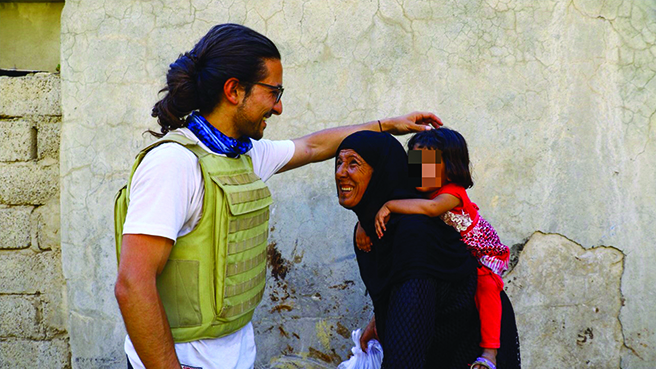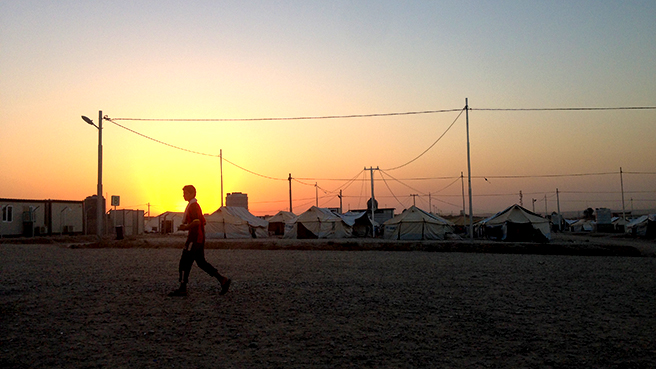
Imagine it’s 55 degrees Celsius, you’re kitted up in bullet-proof body armour and you’re about to enter one of the world’s most dangerous cities to deliver food to people who have lost everything they ever cared about.
For Oli Badin, he didn’t have to imagine… this was a real-life experience.
Prior to pursuing a career with NSW Ambulance late last year, via the Post Employment Tertiary Pathway (PETP), Oli fulfilled a number roles and jobs to help others in need. At just 31-years-old, he has been a personal trainer, exercise scientist, Royal Australian Air Force medic recruit, and an aid volunteer.
But the most fascinating experience of Oli’s life so far occurred in 2017 when he spent seven weeks volunteering as a translator in an Iraqi war zone. While in the Middle Eastern country, Oli spent most of his time working at a clinic within a refugee camp which was where 10,000 people lived after they had been displaced from their homes. While Oli signed up as a translator for refugees at the camp, which was located between the major cities of Erbil and Mosul, he soon found himself doing a lot more to support the people that lived there.
“I was able to treat people with some basic medical interventions,” he said. “A lot of people couldn’t access medical services before they arrived at the camp, so we’d see shrapnel wounds which hadn’t been treated in months, pregnant women and lots of minor trauma."
“We had a 12-bed clinic to cater for over 10,000 people – it was non-stop.”

While Oli said much of his treatment was for low-acuity conditions, he said he also provided other forms of goodwill support that extended beyond the scope of medicine and translating.
“The experience was very rewarding, but also very sad,” he said. “I found this particularly true for the youth I saw. They are disenchanted and rightfully so. They have no thoughts about their future, given they live in this ‘tent city’. For me to be able to spend some time with them, whether it be sharing a joke or kicking an AFL ball around with them, that was really rewarding."
“With the adults, dealing with their health presentations was also very important for the children as it meant they were in better position to look after their kids, as well as themselves.”
Outside of the camp, Oli also had the opportunity to visit West Mosul just a month after Islamic State - who had occupied the city for several years - were defeated.
“While I was there we did five food and water aid runs into Mosul. Each time that was 1000 bags of food and 1000 water containers for people who otherwise had no support.”
“We had to wear body armour and were escorted by an Iraqi special forces team given it was still dangerous going into the city - it was great to have them involved in helping their community as well.
“It was very raw, and different seeing Mosul in-person compared to a TV news report. One of the saddest things was seeing the city’s art and architecture reduced to rubble.”
Oli, who currently works out of Balgowlah Station, said the memorable experience had also served him well for his current role as a Trainee Paramedic.
“I think it definitely helped me to develop my people skills, given I had to try to understand their concerns when they visited the clinic, just as I have to in this role when we go out to patients,” he said.
While Oli is in the early stages of his paramedic career, he said he is loving it so far.
“It’s where I want to be professionally and I’m really excited to keep learning, reach the P1 level and one day hopefully become an intensive care paramedic.”
